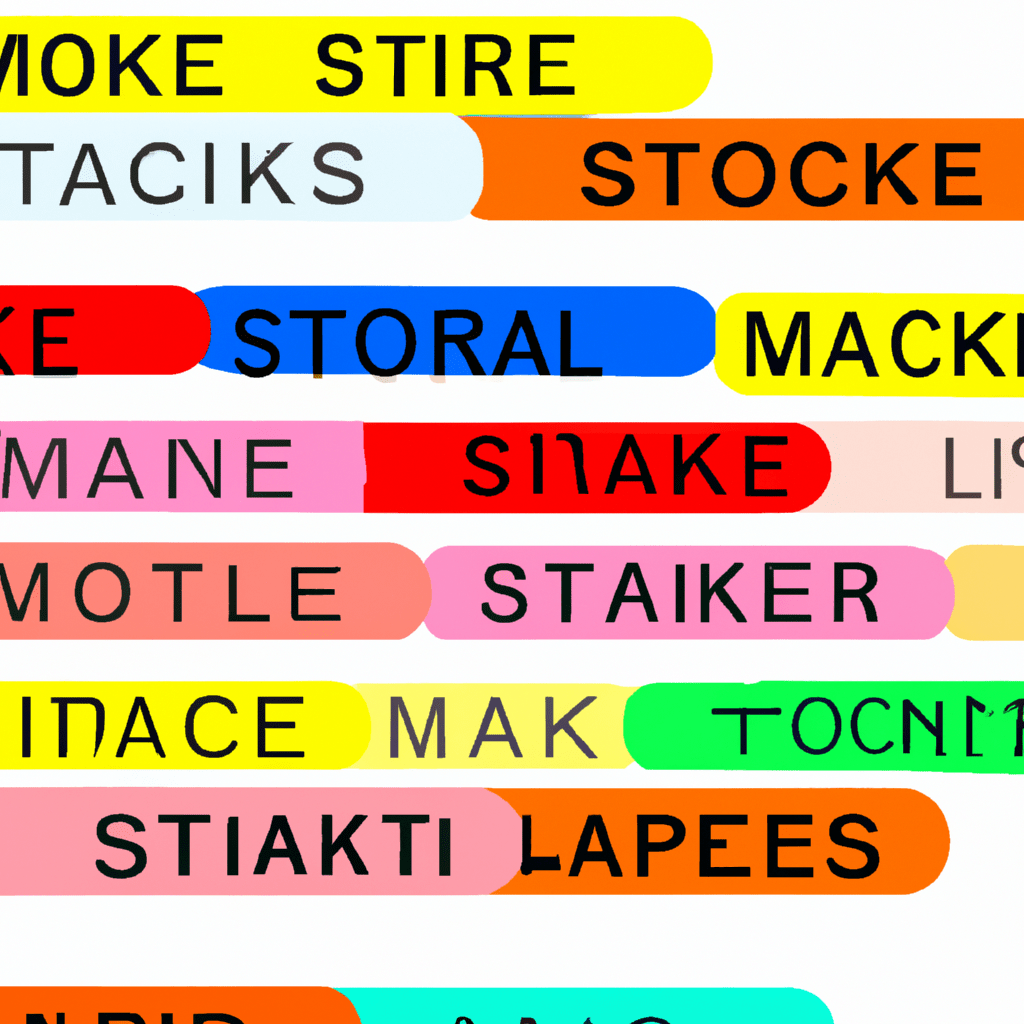In the complex and ever-evolving world of finance, one concept that has gained significant attention and importance is financial derivatives. These instruments play a crucial role in hedging risks, speculating on price movements, and adding flexibility to investment strategies. However, for beginners, understanding the intricacies of financial derivatives such as futures contracts and options trading can be intimidating. This article aims to demystify stock derivatives and provide a comprehensive beginner's guide to futures and options trading. By exploring the world of financial derivatives, we will delve into how futures and options contracts work, equipping beginners with the knowledge and confidence to navigate this fascinating realm of investment. So, whether you are interested in exploring futures options trading or simply looking to expand your understanding of stock derivatives, this article is the perfect starting point.
1. Understanding Financial Derivatives: A Beginner’s Guide to Futures Contracts and Options Trading

Financial derivatives are complex financial instruments that derive their value from an underlying asset or group of assets. They can be used for various purposes, including hedging against price fluctuations, speculating on future price movements, and managing risk. In this beginner's guide, we will focus on two commonly used types of financial derivatives: futures contracts and options trading.
Futures contracts are agreements between two parties to buy or sell an asset at a predetermined price on a specified future date. These contracts are standardized and traded on organized exchanges. One key characteristic of futures contracts is leverage, which allows investors to control a large amount of the underlying asset with a relatively small initial investment. For example, if the price of crude oil is expected to rise in the future, an investor can buy a futures contract for oil, enabling them to profit from the price increase without actually owning the physical oil. However, it's important to note that futures trading involves a high level of risk and requires careful consideration of market conditions and risk management strategies.
Options trading, on the other hand, provides the right but not the obligation to buy or sell an asset at a predetermined price within a specified time period. Options are versatile financial instruments that can be used for hedging, speculation, or generating income. There are two main types of options: call options and put options. A call option gives the holder the right to buy the underlying asset, while a put option gives the holder the right to sell the underlying asset. Options trading allows investors to participate in the market with limited risk, as the maximum loss is limited to the premium paid for the option. However, it's crucial to understand the various factors that influence option prices, such as the underlying asset's price, volatility, time to expiration, and interest rates.
Both futures contracts and options trading are considered stock derivatives, as their value is derived from an underlying stock or index. These financial derivatives provide opportunities for investors to diversify their portfolios, hedge against market risks, and potentially generate profits. However, it's essential for beginners to thoroughly educate themselves on the mechanics, risks, and strategies involved in futures and options trading before getting started.
In conclusion, financial derivatives such as futures contracts and options trading offer investors the ability to speculate on price movements, manage risk, and diversify their portfolios. While these instruments can be powerful tools, beginners should approach them with caution and seek proper education and guidance to navigate the complexities of the futures and options markets. By understanding the fundamentals and employing effective risk management strategies, individuals can harness the potential benefits of financial derivatives while minimizing potential losses.
2. Demystifying Stock Derivatives: An Introduction to Futures and Options Trading

Financial derivatives play a crucial role in the modern financial markets, enabling investors to manage risks, speculate on market movements, and diversify their portfolios. Among the various types of financial derivatives, stock derivatives, such as futures and options, are widely used by both institutional and individual traders. In this section, we will demystify stock derivatives by providing an introduction to futures and options trading, making it easier for beginners to understand and participate in these markets.
Let's start with futures contracts, which are one of the most common types of financial derivatives. A futures contract is a legally binding agreement between two parties to buy or sell an underlying asset, in this case, stocks, at a predetermined price and date in the future. The predetermined price is known as the futures price, and the predetermined date is called the expiration date.
Futures contracts are traded on organized exchanges, such as the Chicago Mercantile Exchange (CME) or the New York Mercantile Exchange (NYMEX). These exchanges provide a centralized marketplace where buyers and sellers can easily enter into futures contracts. The standardized nature of futures contracts ensures liquidity and transparency in the market.
Investors use futures contracts for various purposes. Hedgers, such as farmers or manufacturers, use futures contracts to protect themselves against adverse price movements in the future. For example, a farmer may enter into a futures contract to sell their crops at a predetermined price, ensuring a stable income regardless of market fluctuations.
Speculators, on the other hand, aim to profit from price movements in the underlying asset. They may buy futures contracts if they anticipate an increase in stock prices or sell futures contracts if they predict a decline. Speculators leverage their positions, meaning they can control a large amount of underlying assets with a smaller investment, potentially amplifying their gains or losses.
Options, another type of stock derivative, provide traders with the right, but not the obligation, to buy or sell an underlying asset at a predetermined price within a specified period. There are two types of options: call options, which give the holder the right to buy the asset, and put options, which give the holder the right to sell the asset.
Options trading allows investors to profit from both rising and falling markets. For instance, if an investor believes that a particular stock will increase in value, they can buy a call option, giving them the right to buy the stock at a predetermined price. If the stock price indeed rises, the investor can exercise the option and buy the stock at a lower price, subsequently selling it at a higher market price for a profit.
On the other hand, if an investor anticipates a decline in stock prices, they can buy a put option, giving them the right to sell the stock at a predetermined price. If the stock price falls, the investor can exercise the option and sell the stock at a higher predetermined price, effectively avoiding potential losses.
Both futures and options trading require a certain level of knowledge and understanding of the underlying markets. Beginners interested in futures and options trading should consider educating themselves through various resources, such as books, online courses, or seminars. It is essential to familiarize oneself with the terminology, strategies, and risks associated with these financial derivatives.
In conclusion, futures and options trading are essential components of stock derivatives, offering investors various opportunities to manage risks and profit from market movements. By demystifying these concepts and providing a beginner's guide, individuals can start their journey into the exciting world of futures and options trading.
3. Exploring the World of Financial Derivatives: How Futures and Options Contracts Work for Beginners

Financial derivatives are complex financial instruments that derive their value from an underlying asset or index. They are used to manage risk, speculate on price movements, and provide leverage in financial markets. In this section, we will explore the world of financial derivatives, specifically focusing on futures and options contracts, and provide a beginner's guide to understanding how they work.
Futures contracts are a type of financial derivative that obligates the buyer to purchase an asset or the seller to sell an asset at a predetermined price and date in the future. They are commonly used in commodities markets, such as oil, gold, or agricultural products, but can also be traded on stock indices, currencies, and interest rates. The predetermined price at which the transaction will occur is known as the futures price.
For beginners, understanding futures contracts can be a bit daunting. However, it is essential to grasp the basic mechanics. Let's take an example of a futures contract for gold. If you believe that the price of gold will increase in the future, you can enter into a futures contract to buy gold at a predetermined price. By doing so, you are essentially locking in the purchase price and protecting yourself from potential price increases. On the other hand, if you believe that the price of gold will decrease, you can enter into a futures contract to sell gold at a predetermined price, thus protecting yourself from potential price declines.
Options contracts, another type of financial derivative, provide the buyer with the right, but not the obligation, to buy (call option) or sell (put option) an underlying asset at a predetermined price within a specified period. Options contracts are commonly used in stock markets, allowing investors to hedge against price volatility or speculate on future price movements.
Let's say you want to buy a call option on a stock. This gives you the right, but not the obligation, to purchase the stock at a predetermined price (known as the strike price) within a specified period (known as the expiration date). If the stock price increases above the strike price during that period, you can exercise your option and buy the stock at a lower price, profiting from the price difference. If the stock price does not reach the strike price, you can choose not to exercise the option and only lose the premium paid for the contract.
Understanding the world of financial derivatives, including futures and options contracts, is crucial for beginners venturing into stock derivatives or futures options trading. These instruments provide opportunities for risk management and potential profit generation. However, it is essential to approach them with caution and seek professional advice when needed. By continuously learning and gaining experience, beginners can navigate the intricacies of financial derivatives and make informed investment decisions.
In conclusion, financial derivatives offer a world of opportunities for investors, whether they are beginners or seasoned traders. This article has provided a comprehensive beginner's guide to futures contracts and options trading, demystifying stock derivatives and exploring how futures and options contracts work. By understanding the basics of financial derivatives, such as futures and options, investors can make informed decisions and potentially increase their profits. Whether one is interested in futures options trading or simply wants to gain a better understanding of stock derivatives, this article serves as a valuable resource for beginners. As the world of financial derivatives continues to evolve, it is crucial for investors to stay informed and keep up with the latest trends and strategies. With the knowledge gained from this article, beginners can confidently navigate the complexities of financial derivatives and embark on their journey towards financial success.





